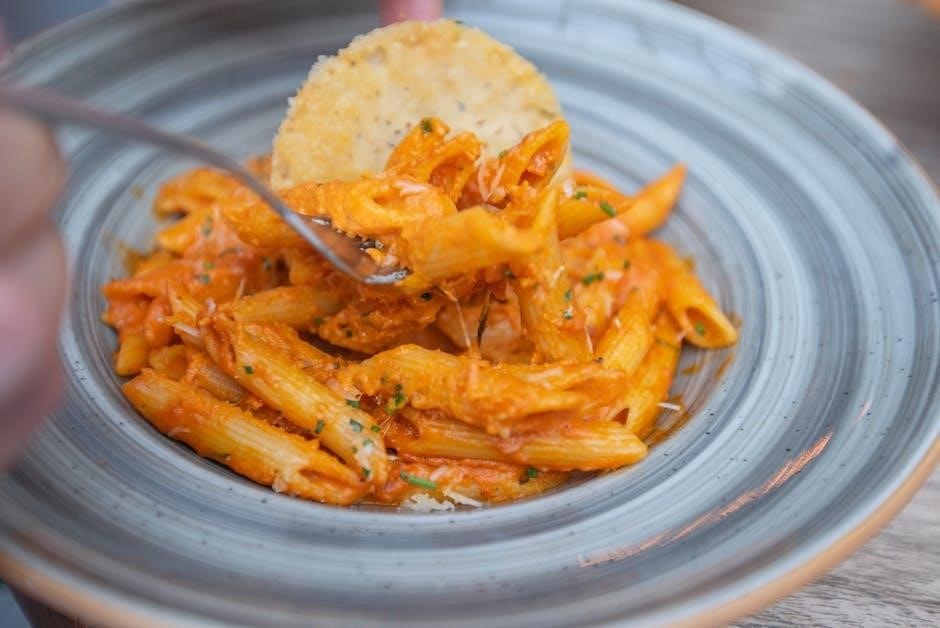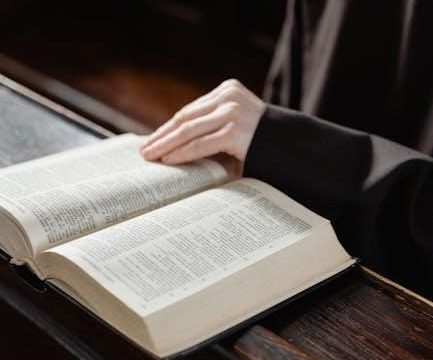Overview of the Book and Its Significance
Rosalind Miles’ Who Cooked the Last Supper? reimagines history by highlighting women’s overlooked roles‚ offering a fresh perspective on their contributions to human civilization and culture.
The book challenges traditional narratives‚ emphasizing the often-ignored influence of women in shaping historical events‚ from ancient times to the modern era‚ in a witty and insightful manner.
Available as a PDF‚ this groundbreaking work invites readers to reconsider history through a feminist lens‚ uncovering the untold stories of women who shaped the world we know today.
Rosalind Miles’ Who Cooked the Last Supper? is a compelling exploration of women’s roles throughout history‚ challenging traditional narratives that often exclude female contributions. The book delves into the untold stories of women who shaped human civilization‚ from ancient times to the modern era‚ offering a fresh and inclusive perspective.
Miles’ work is significant for its ability to blend historical depth with engaging storytelling‚ making it accessible to a broad audience. By questioning the omission of women in historical accounts‚ the book sparks a reevaluation of how history is recorded and perceived.
Available in PDF‚ Who Cooked the Last Supper? serves as a call to recognize and honor the often-overlooked achievements of women‚ providing a richer understanding of their influence on culture‚ society‚ and spirituality.
The Central Question: Who Prepared the Last Supper?
The book Who Cooked the Last Supper? poses a provocative question about one of Christianity’s most sacred events. While the Bible attributes the Last Supper to Jesus and his disciples‚ Miles challenges this narrative by exploring the possibility of female involvement in its preparation.
Historically‚ women often managed domestic duties‚ including cooking‚ in ancient Jewish society. Miles suggests that women may have played a crucial yet unacknowledged role in preparing this pivotal meal‚ reflecting broader themes of women’s hidden contributions to history.
The question of who cooked the Last Supper extends beyond culinary duties‚ symbolizing the intersection of food‚ culture‚ and spirituality. Miles’ inquiry invites readers to reconsider the invisibility of women in historical accounts and their enduring impact on religious and cultural practices.
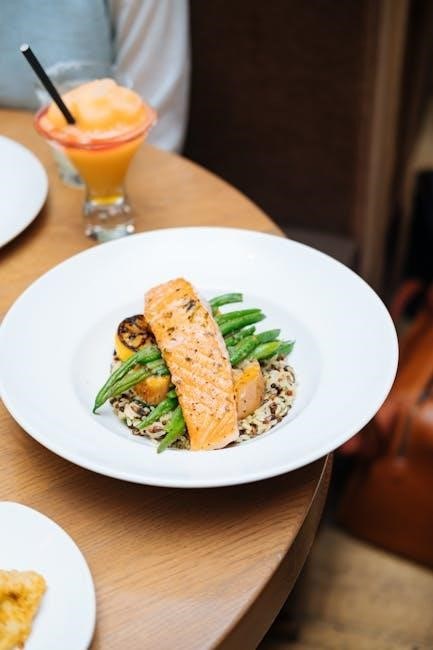
Historical Context of the Last Supper
The Last Supper occurred during Passover‚ a Jewish holiday commemorating the Exodus‚ highlighting its cultural and religious significance in Christianity and ancient traditions.
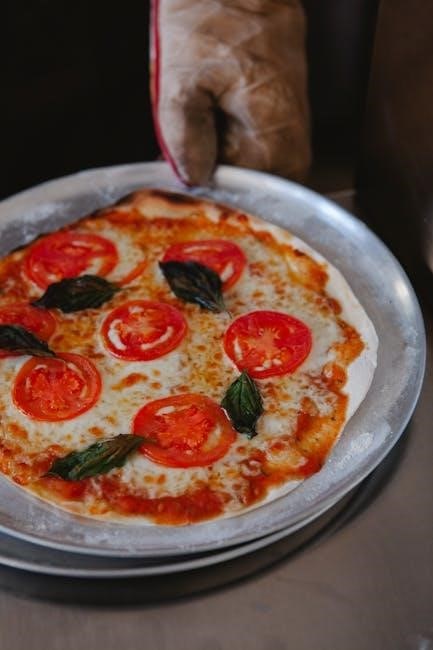
The Biblical Account and Its Significance
The Last Supper‚ as described in the New Testament‚ was a pivotal moment in Christian theology‚ marking Jesus’ final meal with his disciples before his betrayal and crucifixion.
According to the biblical account‚ Jesus shared this meal during the Jewish holiday of Passover‚ symbolizing both the Exodus and the impending sacrifice he would make for humanity.
While the Bible does not specify who prepared the meal‚ it emphasizes the spiritual and communal significance of sharing food‚ reflecting themes of unity‚ love‚ and divine purpose.
The question of who cooked the meal‚ raised by Rosalind Miles in her book‚ invites readers to explore the often-overlooked roles of women in biblical and historical narratives.
This inquiry aligns with Miles’ broader argument about the invisibility of women’s contributions to history‚ challenging readers to reconsider their understanding of cultural and religious traditions.
By examining this moment through a feminist lens‚ the book highlights the importance of questioning assumptions and uncovering hidden stories within well-known historical events.
The Role of Women in Ancient Jewish Society
In ancient Jewish society‚ women played vital roles in domestic and communal life‚ often managing households and preparing meals for religious and cultural events.
While their contributions were frequently overlooked in historical records‚ women were central to preserving traditions‚ including culinary practices essential for celebrations like Passover.

The preparation of the Last Supper‚ a Passover meal‚ would have typically fallen to women‚ who were responsible for such tasks in Jewish households.
Rosalind Miles’ book highlights how women’s roles in history‚ including their domestic labor‚ have been marginalized‚ challenging readers to reconsider their assumptions about gender and contribution.
By examining the invisible yet indispensable work of women‚ the book sheds light on their importance in shaping cultural and religious traditions‚ even in the shadows of recorded history.
This perspective invites a deeper understanding of how women’s labor‚ often unseen‚ has been foundational to human civilization.
The Meal’s Preparation and Culinary Traditions
The Last Supper‚ a Passover meal‚ was deeply rooted in Jewish culinary traditions‚ featuring unleavened bread‚ wine‚ and symbolic dishes like bitter herbs.
Preparation involved meticulous adherence to Jewish customs‚ with women typically overseeing the cooking‚ ensuring ritual purity and adherence to dietary laws.
The meal’s simplicity and significance reflect the cultural importance of communal dining in ancient Jewish society‚ where sharing food symbolized unity and hospitality.
Rosalind Miles’ exploration of this meal challenges readers to consider the unseen labor behind such rituals‚ often attributed to women‚ and how these traditions shaped spiritual and cultural practices.
By examining the culinary customs surrounding the Last Supper‚ Miles connects food‚ culture‚ and faith‚ highlighting the enduring legacy of these traditions in religious and historical narratives.
Exploring the Book’s Themes
Rediscovering Women’s Contributions to History
Who Cooked the Last Supper? uncovers the often-overlooked roles of women in shaping human history‚ challenging the male-dominated narratives traditionally presented in historical accounts.
Challenging Traditional Historical Narratives

Miles questions the exclusion of women from historical records‚ advocating for a more inclusive understanding of their influence in culture‚ society‚ and spirituality.
The Intersection of Food‚ Culture‚ and Spirituality
The book explores how meals like the Last Supper symbolize community‚ faith‚ and cultural identity‚ highlighting the deeper meanings behind food in religious and historical contexts.
Rosalind Miles’ Who Cooked the Last Supper? challenges traditional historical narratives by reclaiming the often-overlooked contributions of women throughout history.
From ancient civilizations to modern times‚ women have played pivotal roles as inventors‚ leaders‚ and cultural shapers‚ yet their stories have been marginalized or erased.
Miles highlights how women’s influence extended beyond domestic spheres‚ shaping revolutions‚ empires‚ and spiritual movements‚ despite being excluded from historical records.
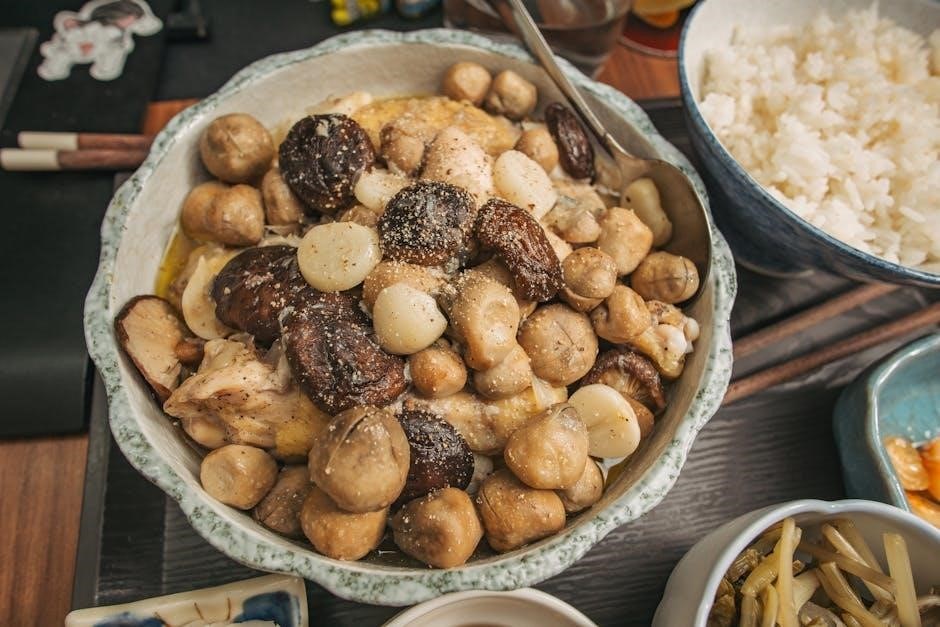
By uncovering these hidden narratives‚ the book restores women to their rightful place in history‚ offering a more inclusive and accurate understanding of human civilization.
This reclamation not only challenges gender biases but also inspires a deeper appreciation for the diverse voices that have shaped the world.
The book’s accessible and engaging style makes it a powerful tool for understanding the past and fostering a more equitable future.
Rosalind Miles’ Who Cooked the Last Supper? boldly challenges the conventional historical accounts that have long excluded women’s voices and contributions.
By questioning the omission of women in historical records‚ Miles reveals how their roles as leaders‚ inventors‚ and cultural influencers have been systematically overlooked.
The book critiques the male-dominated narratives that have shaped our understanding of the past‚ offering a fresh perspective on women’s impact across centuries.
Miles argues that women’s exclusion from history has distorted our comprehension of human progress‚ calling for a more inclusive and truthful recounting of events.
This challenge to traditional narratives not only sheds light on forgotten heroines but also encourages readers to rethink the foundations of history and culture.
Through this lens‚ the book becomes a powerful tool for reimagining the past and fostering a more equitable understanding of human civilization.
The Last Supper‚ as explored in Who Cooked the Last Supper?‚ symbolizes the profound connection between food‚ culture‚ and spirituality. This meal‚ rooted in Jewish tradition‚ transcends its historical context to embody themes of sacrifice‚ betrayal‚ and divine purpose.
Food serves as a cultural bridge‚ fostering community and unity‚ as seen in the shared Passover feast. The act of cooking and sharing meals reflects spiritual values of love‚ service‚ and togetherness.
Miles highlights how culinary traditions reinforce cultural identity and spiritual practices‚ while the symbolism of the Last Supper continues to inspire art and theology‚ offering timeless reflections on faith and human connection.
Who Cooked the Last Supper?
The question of who cooked the Last Supper remains intriguing‚ with theories suggesting the disciples or Jesus himself‚ but its significance lies in its spiritual and communal meaning.
Theories About the Disciples’ Involvement
The question of who cooked the Last Supper sparks intriguing theories‚ with many believing the disciples played a key role. According to historical accounts‚ the disciples may have prepared and served the meal‚ aligning with traditional views of their supportive roles. Additionally‚ some speculate that Jesus himself might have participated in the cooking‚ adding a layer of shared responsibility. This theory underscores the communal nature of the event‚ reflecting the close bond between Jesus and his followers. While the exact identity of the cook remains unclear‚ the disciples’ involvement highlights their active participation in this pivotal moment in Christian history‚ emphasizing teamwork and unity.
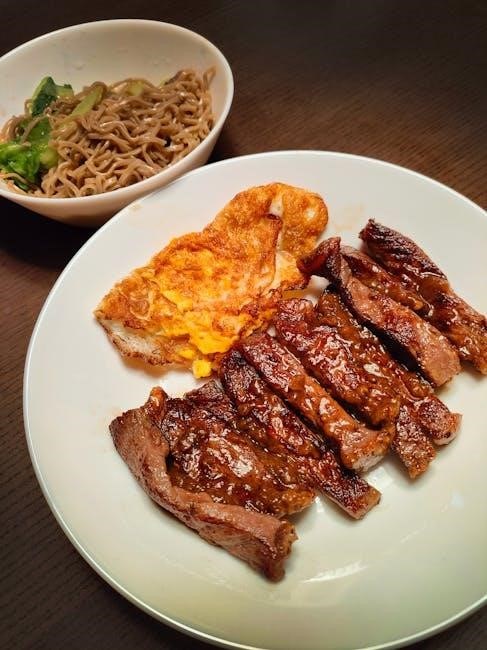
The Possibility of Female Participation
The possibility of female participation in cooking the Last Supper is a compelling theory explored in Rosalind Miles’ work. While traditional accounts often overlook women’s roles‚ Miles suggests that women may have played a significant part in preparing the meal. This perspective aligns with the cultural context of ancient Jewish society‚ where women were typically responsible for domestic duties‚ including cooking. The inclusion of female cooks would add a rich layer of symbolism‚ reflecting the shared responsibilities and communal spirit of the event. By revisiting this angle‚ Miles challenges the male-dominated narratives of history‚ inviting readers to reimagine the contributions of women in pivotal moments like the Last Supper.
The Symbolism of Cooking and Sharing Meals
Cooking and sharing meals hold profound symbolic meaning‚ reflecting themes of community‚ hospitality‚ and spiritual unity. In Who Cooked the Last Supper?‚ Rosalind Miles highlights how the act of preparing and sharing food transcends mere sustenance‚ embodying deeper connections and shared purpose. The Last Supper‚ as a meal‚ symbolizes sacrifice‚ betrayal‚ and divine purpose‚ while its preparation underscores the collaborative effort often unseen in historical narratives. The act of cooking‚ often associated with women’s roles‚ represents care‚ nurture‚ and the invisible labor that sustains communities. By exploring this symbolism‚ Miles invites readers to reflect on how such everyday acts are imbued with spiritual and cultural significance‚ challenging us to see the sacred in the mundane and the unseen contributions that shape human history.
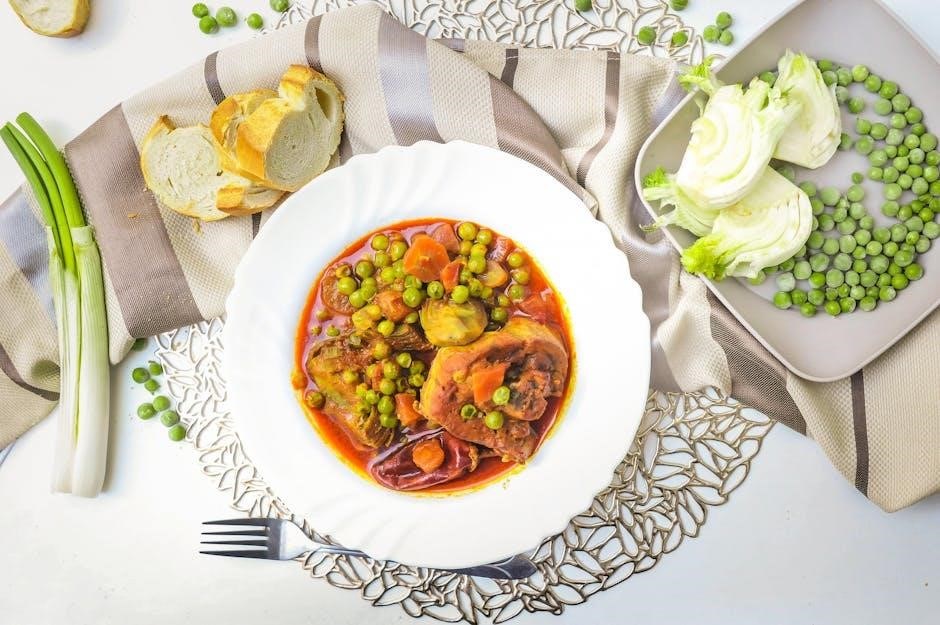
Cultural and Religious Significance

The Last Supper holds profound cultural and religious symbolism‚ representing sacrifice‚ betrayal‚ and divine purpose. Its depiction in art and theology underscores its enduring spiritual and universal themes.
The Last Supper as a Symbol of Sacrifice and Betrayal
The Last Supper‚ as depicted in Christian theology‚ is a poignant symbol of sacrifice and betrayal. It represents Jesus’s final moments with his disciples before his crucifixion‚ embodying themes of love‚ forgiveness‚ and mortality. The act of sharing bread and wine‚ later symbolic of his body and blood‚ underscores the profound spiritual significance of the meal. This event‚ central to Christian belief‚ also highlights the betrayal by Judas‚ adding depth to the narrative of sacrifice. The meal transcends its historical context‚ resonating as a universal symbol of unity‚ devotion‚ and the human struggle with betrayal. Its enduring relevance in art‚ theology‚ and culture reflects its timeless emotional and spiritual impact.
Its Role in Christian Theology and Art
The Last Supper holds a central place in Christian theology‚ symbolizing the institution of the Eucharist and Jesus’s final act of love before his crucifixion. It is often depicted in art‚ most famously by Leonardo da Vinci‚ whose painting has become an iconic representation of the event. The meal’s preparation and sharing are seen as a metaphor for spiritual nourishment and communal unity. In art‚ the Last Supper is frequently portrayed to emphasize emotional depth‚ capturing the disciples’ reactions to Jesus’s announcement of betrayal. This imagery has inspired countless works across centuries‚ cementing its place in both religious and cultural heritage. The fusion of theology and art underscores the enduring significance of the Last Supper as a universal symbol of faith and humanity.
Modern Interpretations and Relevance
The question of who cooked the Last Supper resonates in modern times‚ sparking conversations about gender roles‚ spirituality‚ and cultural traditions. Rosalind Miles’ book challenges readers to rethink history‚ emphasizing women’s contributions to faith and culture. Available as a PDF‚ the text remains accessible‚ encouraging contemporary audiences to reflect on the intersection of food‚ spirituality‚ and community. The Last Supper’s symbolism extends beyond theology‚ representing themes of sacrifice‚ betrayal‚ and unity that continue to inspire art‚ literature‚ and personal reflection. By exploring these themes‚ Miles’ work bridges the past and present‚ inviting readers to reconsider the often-overlooked stories of women who shaped history. This modern lens highlights the enduring relevance of the Last Supper as a cultural and spiritual touchstone.
Rosalind Miles’ Who Cooked the Last Supper? leaves a lasting impact by uncovering women’s hidden contributions to history‚ inspiring a deeper reflection on their enduring legacy and influence.
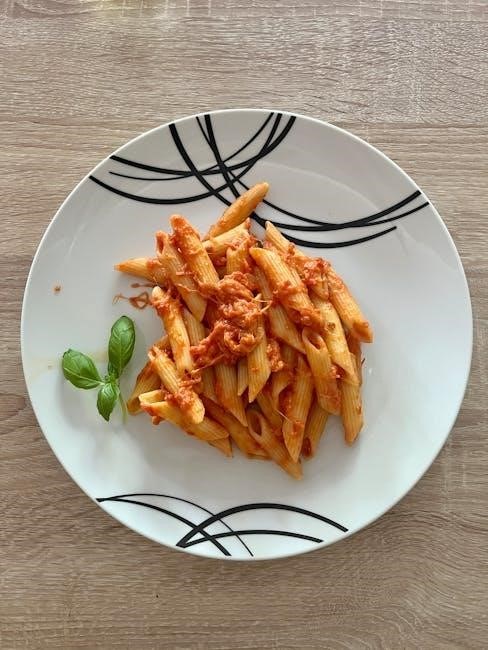
Reflecting on the Book’s Impact
Rosalind Miles’ Who Cooked the Last Supper? challenges readers to rethink history by uncovering women’s often-overlooked contributions‚ sparking a reevaluation of their roles in shaping human civilization.
The book’s impact lies in its ability to inspire a deeper appreciation for the untold stories of women‚ fostering a more inclusive understanding of historical events and cultural developments.
While the identity of the cook remains a mystery‚ the book succeeds in shifting the narrative‚ encouraging readers to question traditional accounts and embrace a more comprehensive view of history.
The Lasting Legacy of Women’s Contributions
Rosalind Miles’ Who Cooked the Last Supper? underscores the enduring impact of women’s roles in history‚ moving beyond their traditional portrayal as mere caregivers to reveal their influence as inventors‚ leaders‚ and cultural shapers.
By reclaiming women’s histories‚ the book challenges the erasure of their contributions‚ highlighting their integral part in shaping civilizations‚ revolutions‚ and cultural movements across time.
The lasting legacy of women’s contributions‚ as illuminated in the book‚ serves as a powerful reminder of the importance of inclusivity in historical narratives‚ ensuring their stories are no longer overlooked or undervalued.
Final Thoughts on the Question
The question of who cooked the Last Supper remains a fascinating mystery‚ with theories suggesting the disciples‚ possibly aided by Jesus‚ prepared the meal. This inquiry‚ while intriguing‚ extends beyond historical curiosity‚ inviting reflection on the often-overlooked roles of women in shaping history.
Rosalind Miles’ exploration challenges traditional narratives‚ emphasizing women’s vital contributions to culture‚ faith‚ and community. The act of cooking and sharing meals‚ as seen in the Last Supper‚ symbolizes unity‚ sacrifice‚ and spirituality‚ transcending its historical context.
Ultimately‚ the book’s witty and insightful approach reimagines history‚ ensuring women’s stories are central to our understanding of civilization‚ offering a timeless reminder of their enduring impact on human experience and legacy.
